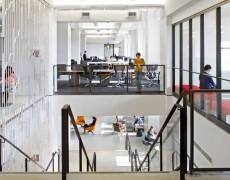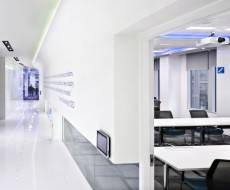March 28, 2014
UK is world’s fourth most attractive business location, claims report
The latest edition of KPMG’s bi-annual study of the comparative attractiveness of more than 100 cities (many of them in the US) as business locations claims that the UK is one of the world’s best countries in which to do business. The Competitive Alternatives Report for 2014 assessed the competitiveness of cities in ten countries across four commercial sectors – digital services, research and development (R&D), corporate services and manufacturing – and found that the UK is the second most competitive country for corporate services; third for digital services; fourth for R&D and manufacturing and fourth overall. In Europe, the clear cost leader is Manchester with overall business costs more than 10 percent lower than those of London, the only other UK city assessed. The report claims the UK’s tax regime is a crucial factor for international enterprises as they make important funding and operational decisions.


























March 28, 2014
Google’s new Amsterdam office exposes Tech’s youthful obsessions
by Mark Eltringham • Comment, Technology, Workplace design
All images © Alan Jensen and D/Dock
Back in the 1990s, when Frank Duffy was one of the august handful of people popularising notions of a changing approach to office design, he categorised four models of the workplace that he foresaw would come to reflect the work done in them, namely the den, cell, hive and club. Back then, the word ‘club’ conjured up images of gentleman’s clubs and Duffy himself described it in his 1997 book The New Office as ‘essentially an ingenious early 19th Century device to allow the kind of people who are now called networkers to share as supportive an environment as possible’, illustrating his point with an old coloured engraving of upright gents sitting around in a neo-classical, Victorian, smoke-filled room reading newspapers, sipping port and chewing the fat. Nowadays, the word club would appear to suggest something more along the lines of a youth club, as the latest pubescent design of a Google office shows us. (more…)